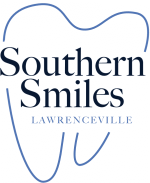When was the last time you visited the dentist? If it’s been a while, you’re not alone—many people put off those routine check-ups. Yet, skipping these appointments can lead to problems you might not even see coming. Just like regular oil changes keep your car running smoothly, routine dental check-ups are essential for maintaining good oral health. They help catch issues early on, which means less pain and fewer expensive treatments down the road. So why not take a few moments to understand how these visits benefit your overall well-being? Let’s dive into the importance of routine check-ups in general dentistry and why they should be a priority in our lives.
Routine check-ups are crucial in general dentistry as they help in early detection and prevention of oral diseases, enabling less invasive treatments and significantly improving overall health outcomes. Regular visits also allow for personalized patient education and interventions that can prevent serious complications arising from neglected dental issues.
Why Regular Check-Ups Matter
Regular check-ups aren’t merely a chore; they’re preventive measures that can significantly impact your health over time. During these visits, dentists conduct thorough examinations, often unraveling problems before they escalate into serious issues. For instance, studies have found that individuals who visit the dentist regularly are less likely to develop severe dental complications compared to those who neglect routine care. This stark difference underscores the importance of making that appointment every six months.
While the immediate benefits of regular visits are clear, the long-term implications resonate on a larger scale.
Lifespan Impact
The consequences of regular check-ups extend well beyond current health challenges. Adults who maintain consistent dental visits often retain more teeth as they age. This preservation significantly reduces the chances of facing complications related to tooth loss, such as malnutrition or chronic pain caused by missing teeth.
This retention becomes particularly meaningful in conversations about quality of life. Imagine not being able to enjoy your favorite foods or feeling self-conscious about your smile during social encounters—all potentially stemming from neglected dental care. Therefore, investing time in regular dental appointments isn’t simply a nod toward good hygiene—it’s a proactive approach toward securing a fulfilling lifestyle both now and in the years ahead.
When you engage with experienced professionals, you’re taking a crucial step towards better understanding the vital areas involved in maintaining optimal oral care.
Key Components of a Routine Dental Visit
A typical dental visit includes several essential components designed to protect and enhance your oral health. Understanding these elements helps demystify the experience and ensures you’re prepared for what lies ahead. It’s not just about the appointment; it’s about what happens during that time that impacts your well-being.
Examination
The first step is a comprehensive examination. This process involves utilizing both visual inspection and advanced technology like digital x-rays to uncover issues that may not be visible to the naked eye—everything from cavities to gum disease or even early signs of oral cancer. These high-quality images produced by modern equipment utilize less radiation while giving dentists the clarity they need for an accurate diagnosis. Knowing this can ease any apprehension about exposure, allowing you to focus on the benefits: catching potential problems early before they escalate into bigger concerns. So, when you sit in that chair, remember it’s about preventive care—an investment in your health.
Cleaning
Following the examination is often professional cleaning, which takes it a step further than regular brushing at home. During cleaning, dental hygienists meticulously remove plaque and tartar that may have accumulated, no matter how diligent you are about your daily oral hygiene routine. The cleaning not only leaves your teeth feeling polished but can also prevent future cavities and gum issues. Many patients find this part refreshing—consider it akin to getting a thorough tune-up for your car: it ensures everything runs smoothly while enhancing overall performance.
Consultation
After the cleaning, a vital aspect of your visit entails consulting with your dentist. This is an opportunity to discuss any specific concerns you might have, whether it’s tooth sensitivity or questions about cosmetic procedures. Your dentist will offer tailored advice based on your individual oral health needs, ensuring you leave with actionable tips that fit your lifestyle. This personalized approach equips you with knowledge that empowers your oral care routine moving forward.
Understanding these core components of your dental visit prepares you for what to expect and highlights the myriad benefits associated with these appointments. This leads seamlessly into how early detection of potential problems can greatly influence your overall oral health journey.
Benefits of Early Problem Detection
Spotting dental issues before they escalate is more than just a precaution; it’s like having a treasure map that leads you away from the pitfalls of expensive and painful treatments. When your dentist identifies potential problems during routine check-ups, you gain a two-fold advantage: improved treatment outcomes and significant reductions in the complexity of required procedures.
For instance, an early diagnosis of a cavity can often result in a straightforward filling, while neglecting it could lead to the need for a root canal or even worse—extraction.
Less Invasive Treatment
One pivotal advantage of early detection is that it makes treatments less invasive. If we take cavities as a case study, the difference in treatment paths can be startling. Picture this: you’re at your appointment, and your dentist discovers a small cavity that is just beginning to form. With timely intervention, it can be filled quickly—usually in under an hour—allowing you to walk out of the office with minimal discomfort and without significant disruption to your day.
On the other hand, if that cavity goes unnoticed for too long and evolves into something more serious, such as an infection reaching the nerve or pulp of your tooth, you could potentially face extensive procedures like a root canal. This not only consumes more time but also carries the risk of complications and requires additional follow-up visits.
Steps to Finding the Right Dentist
Choosing a dentist isn’t just about picking a name from a list; it’s about establishing a relationship that will support your dental health for years to come. The journey often begins with recommendations. Start by seeking suggestions from those you trust—family, friends, and colleagues can offer valuable insights based on their experiences.
Don’t overlook the power of online reviews either; platforms like Google and Yelp are treasure troves of information where you can see how others have rated their dentists. This blend of personal recommendations and public opinions provides a fuller picture, helping you narrow down your options.
Once you’ve compiled a list of potential dentists, it’s time to examine their credentials.
Credentials
Verifying a dentist’s credentials is essential. You want to know that the person looking after your mouth has the necessary qualifications. Most dental practices prominently display this information, and you can typically find details about the dentist’s education, training, and areas of specialization on their website. For instance, if you have specific dental needs such as orthodontics or periodontics, look for a dentist with proven expertise in those areas. Credentials matter because they tell you about the level of care you can expect.
After confirming credentials, the next step is to assess compatibility.
Compatibility
Scheduling an initial consultation can be incredibly telling. During this appointment, it’s your chance to gauge comfort levels. Does the dentist listen attentively to your concerns? Are they willing to discuss your dental history thoroughly? These conversations help establish whether this dentist understands your unique needs and preferences.
Pay attention to the office environment as well; assess the cleanliness of the space and the demeanor of the staff. A welcoming atmosphere plays a significant role in making your visits smooth and stress-free. After all, a great dentist should not only provide quality care but also make you feel comfortable.
All these steps culminate in one objective: finding a dentist who prioritizes patient-centered care while addressing both current and future dental needs effectively. Select someone who values communication, cleanliness, and professionalism as much as expertise and knowledge.
Transitioning from this search for the right dental partner to understanding how crucial preventative measures are in maintaining an optimal oral health regime enhances your overall experience at any practice.
Importance of Preventative Care
Preventative care is essential for maintaining a healthy mouth and is often an overlooked aspect of general health. By visiting a dentist regularly, you not only keep your smile bright but also set the stage for a lifetime of good oral hygiene. Routine check-ups play a crucial role in identifying potential problems before they escalate into significant issues that require complex treatment. The preventive measures we take today can save us from painful, costly procedures down the road.
Gum Disease Prevention
One of the leading threats to oral health is gum disease, which affects nearly half of adults aged 30 or older, as noted by the American Dental Association. It begins with mild inflammation but can quickly progress to more severe forms, resulting in tooth loss and other serious health complications. Research published in the Journal of Dental Research shows that regular professional cleanings reduce the risk of advanced gum disease by nearly 50%. This statistic highlights the importance of preventive dental visits—it’s much easier and less expensive to maintain healthy gums than it is to treat gum disease once it’s developed.
With such a substantial amount at stake, it’s vital to make regular dental check-ups part of your healthcare routine. Southern Smiles Lawrenceville emphasizes this connection by offering tailored advice on how to care for your teeth between visits. Simple practices like brushing correctly, flossing daily, and using antibacterial mouth rinse can make all the difference in fending off gum disease.
Educational Aspect
Education plays a pivotal role in preventative dental care. At Southern Smiles Lawrenceville, patient education is prioritized; dentists take time to share valuable insights on daily oral hygiene practices and nutritional advice designed to promote long-term oral health. When patients understand how their choices affect their teeth and gums, they’re better equipped to make decisions that lead to healthier outcomes.
Imagine standing in front of the mirror after just having learned about plaque buildup and harmful bacteria. You might choose to opt for a healthier snack rather than sugary treats. It’s little choices like these that can have lasting effects on your dental health.
Moreover, educating patients helps demystify dental care, reducing anxiety associated with dental visits. Knowing what to expect during cleaning or treatment allows individuals to arrive at appointments feeling informed and prepared rather than apprehensive.
This focus on prevention not only aids in safeguarding against gum disease but also equips patients with insights that foster healthier habits. Now, let’s explore how ongoing dental visits contribute to significant financial savings over time.
How Routine Check-Ups Save Money
While many people might perceive dental check-ups as an unnecessary expense, they actually represent a wise investment in your health and finances. By scheduling regular visits, you engage in preventative care that can substantially reduce the likelihood of requiring costly procedures later on.
To put things into perspective: avoiding dental problems before they escalate is paramount. A root canal, which may be necessary due to negligence, can set you back per tooth. Compare that to the affordable cost of preventive care, and it’s easy to see why staying proactive pays off.
Insurance Benefits
Adding another layer to this financial equation is the role dental insurance plays. Most plans cover routine check-ups and cleanings fully or at least partially, further lessening the financial burden for patients. With coverage for these essential services, you can maintain your oral health without breaking the bank. Taking advantage of these benefits means you’re prioritizing your health and saving yourself from future expenses that can arise from neglecting your dental care.
Avoiding Major Procedures
Additional emphasis on these routine check-ups is seen in data indicating the risk associated with skipping them. Studies show that individuals who miss annual dental visits are twice as likely to require emergency procedures, which are significantly more expensive than routine check-ups. This presents a compelling argument for maintaining those appointments—you can calculate the cost of preventive cleaning against an emergency root canal and see how incredibly cost-effective check-ups can be for sustaining both your health and finances. For optimal oral health and to learn more about scheduling routine check-ups, visit Southern Smiles Lawrenceville.


